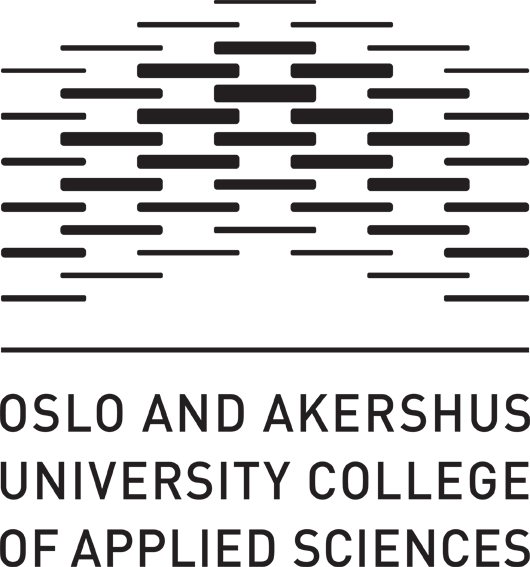Partners and Sponsors
Center for International Education


Over the past decade, the Center for International Education has supported the preparation, mentoring and professional development of hundreds of teachers, teacher educators, and administrators from all over the world. The Center has hosted numerous international exchanges and programs including visiting scholars, joint faculty exchange programs, cohorts of higher education faculty for three-to-six month educational experiences, and cohorts of teachers for cross-cultural professional development. Most recently, international teams have come from Burundi, Russia, Greece, Taiwan, China, Russia, and the Middle East. CIE focuses on research and development of K- university international education systems that explore the nature of international education, provide professional development activities that advance international and intercultural understanding through education, and promote equity worldwide. Recent sponsored projects under the auspices of the CIE include the six years hosting the Teaching Excellence Achievement program, Quality Improvement Fund, World Bank Tertiary Education Fund; Basic.
The Gender and Education Standing Committee
Formed in 1998, the Gender and Education Committee (GEC) is a CIES standing committee that promotes the inclusion and professional development of CIES members focused around gender issues. The GEC is committed to providing opportunities for all CIES members to share their scholarship and experiences, debate urgent and complex methodological issues and build professional alliances around the world.
The South Asia Special Interest Group
The mission of the South Asia SIG is to create a community of researchers, policy-makers and practitioners interested in educational and social issues related to South Asia and South Asian Diaspora. The group aims to provide the much needed space for discussing and exchanging current research, policy, and best practices from the region and beyond and to serve as a networking forum for graduate students, practitioners, policy makers and researchers.
Other partners include:
Ontario Institute for Studies in Education


OISE is recognized as a global leader in graduate programs in teaching and learning, continuing teacher education, and education research. We are the largest and most research-intensive institute of education in Canada and one of the largest in North America. For more than a century, OISE has helped to transform education in Ontario, throughout Canada and around the world. The Comparative, International & Development Education Centre's mandate is to promote excellence, collaboration, and innovation in comparative and international educational research at OISE. As part of the OISE Faculty Conference Funding Program, we gratefully acknowledge the sponsorship contributions of the Office of the Associate Dean, Research, International & Innovation, and the Comparative, International and Development Education Centre (CIDEC), OISE, University of Toronto.
The Oslo and Akershus University College

Oslo and Akershus University College of Applied Sciences (HiOA) is Norway's largest state university college, with a student body of 18 000 students and 1 950 employees and a total of 8 PhD programs. HiOA is unique in a national context due to its wide range of professional programs and strong focus on qualifying students for professions that will contribute to future welfare and value creation in Norway and Europe. Of note is also the fact that HiOA is the largest teacher preparation institution in Norway. The Faculty of Education and International Studies offers educational programs and conducts research in a number of areas that range from social inequalities in Early Childhood Education and Care (ECEC) to the role of Vocational Education with in Norwegian Society. The Faculty has approximately 700 students and roughly 450 staff. Within the Faulty, we have programs covering Teacher Education within ECEC institutions, Primary Education and Vocational Education; Translation and Sign Language Studies; Master programs in Multicultural and International Education and in Teacher Education and; Development Studies.
The University of Redlands
The graduate and professional School of Education endeavors to transform students into innovative scholar-practitioners, guided by the ideals of equity and access, who serve their communities as leaders in k-12, higher education, and human services. Through personalized, inclusive, globally-engaged teaching and scholarship, we aim to shape and enrich educational practices that advance a more just society and impact the lives of individuals in our community and beyond.
University of South Carolina College of Education

The College of Education at the University of South Carolina, the state’s flagship university, is a state and national leader in providing comprehensive, world-class preparation for teachers, counselors, education administrators, athletic trainers, researchers and policymakers. The College of Education is a dynamic, nurturing learning community that supports the growth of aspiring and practicing educators. The College, through purposeful interaction among faculty and students, emphasizes the active construction and application of knowledge, skills, and dispositions to promote educational excellence, equity and opportunity in the 21st century. We honor our responsibility to contribute to the high achievement of all learners and the development of an educated populace. Pursuant to this responsibility, we are committed to developing and sharing our expertise and leadership as well as offering a forum for educational dialogue and advancement.
Center for Sustainable Development, Earth Institute, Columbia University
CSD combines cutting edge research, technology, and best practices to translate the Sustainable Development Goals into meaningful policies and solutions. Our research scientists and technical specialists have expertise in many areas, including health, education, economic development, and the environment. The team at CSD is committed to ensuring that new technologies and solutions are appropriate, affordable, and feasible for advancing sustainable development in low- and middle-income countries. Accordingly, CSD conducts implementation research and policy research with local partners to pilot new solutions, to identify effective ways to integrate solutions into existing systems, and to bring proven solutions to scale. CSD works closely with partners in the public, private, and civil society sectors to promote sustainable development policies and best practices. We advise governments at the national, district, and local levels to strengthen health and education systems, scale up evidence-based solutions, and adopt policies to protect the planet and promote well-being. We also help businesses adapt their sustainability strategies and extend their impact to low-income communities around the world.

